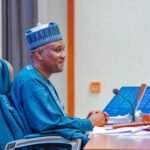Nigeria, located in West Africa, is a country with diverse ethnic and cultural backgrounds. The country is home to over 250 ethnic groups, each with its own unique culture and traditions. While Nigeria has been able to maintain a relatively stable multi-ethnic society since its independence in 1960, race relations have remained a significant challenge.
The issue of race relations in Nigeria dates back to the colonial era when British colonizers introduced a divide-and-rule policy, pitting different ethnic groups against each other to maintain control. This policy resulted in ethnic tension and violence that continued even after Nigeria gained its independence.
One of the most significant examples of ethnic violence in Nigeria is the Biafran War, which occurred between 1967 and 1970. The conflict was a result of the secessionist movement led by the Igbo ethnic group in the southeast, which aimed to create a separate state known as Biafra. The Nigerian government’s response was brutal, resulting in the deaths of over one million people, mostly civilians.
In recent years, race relations in Nigeria have continued to be a significant issue, with instances of ethnic conflict and violence. One of the most prominent cases is the ongoing conflict between Fulani herders and farmers in various parts of the country. The conflict has been attributed to environmental factors such as drought and desertification, as well as political and economic factors.
Another factor that has contributed to the deteriorating race relations in Nigeria is the rise of ethnocentrism and tribalism. Some Nigerians identify more with their ethnic group than with the nation as a whole, leading to a lack of national unity and a sense of division.
Despite these challenges, there have been efforts to improve race relations in Nigeria. For instance, the government has established a National Commission for Refugees, Migrants, and Internally Displaced Persons to address issues affecting displaced persons in the country.
Also, the establishment of the National Youth Service Corps (NYSC) has been instrumental in fostering national unity and integration. The program requires graduates to undergo a one-year compulsory service in a different part of the country from their place of origin. This initiative has enabled young Nigerians to learn about different cultures, traditions, and languages, promoting national unity.
In conclusion, race relations in Nigeria remain a significant challenge, with instances of ethnic conflict and violence still prevalent. However, the government’s efforts to address these issues and the establishment of initiatives such as the NYSC program give hope for a more united and peaceful Nigeria in the future. It is crucial for Nigerians to embrace their diversity and work together to build a more inclusive and tolerant society.







